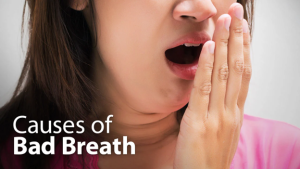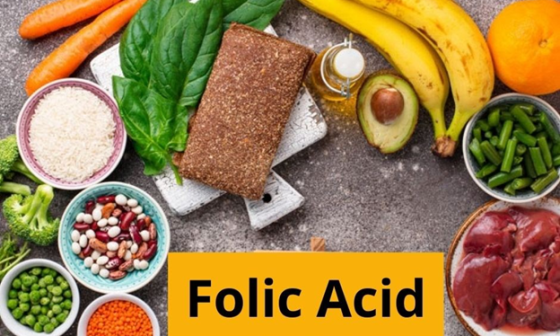WAIT! It is not what you think! We have all been there, worrying about bad breath right before a conversation, date, or meeting. While it’s common to have bad breath after a strong meal or when you first wake up, dealing with constant bad breath, or halitosis, is a whole different story.
Not to worry, this article will educate you on how to ensure you understand what may be causing your halitosis and how you can prevent or get rid of it.

Credit: ShutterStock
What is Halitosis?
Halitosis is bad breath that emanates from the oral cavity due to varying causes. The types include Physiological halitosis, Pseudohalitosis, and Halitophobia.
True halitosis is the type of breath malodor that does not go away with standard oral hygiene measures such as brushing and use of mouthwash. Unlike the occasional foul breath we all get after a strong-smelling meal or in the morning, true halitosis is more chronic and can interfere with personal and professional life.
1 in 4 persons is reported to be affected by halitosis worldwide, whereas in Nigeria reported prevalence of halitosis is between 13- 14% of the population.
What causes Halitosis?

Credit: EVA Pediatric Dentistry
- Neglecting oral hygiene: Let’s be honest — if you don’t brush at least twice a day and floss every day, food particles remain in your mouth, resulting in an increase in bacteria growth and food breakdown by the bacteria that produces bad breath. These bacteria produce pungent sulfur compounds that can be perceived by the nose.
- Mouth infections: Do you have cavities, gum disease, or a sore throat? These infections can also generate a terrible odour, so it’s important to get them checked and treated as required.
- Strong-smelling foods: Garlic, onions, fish, and spicy foods can cause lingering bad breath that goes away with effective brushing. These odours persist because they penetrate your bloodstream and lungs, not just your mouth.
- Smoking: Smoking not only dries up your mouth, but it also leaves chemicals behind that emit a foul smell. Furthermore, smoking raises the risk of gum disease, which produces bad breath.
- Certain medical conditions: Bad breath can be caused by a variety of medical disorders, including acid reflux, diabetes, respiratory infections, and kidney failure. If you have any of these conditions, managing and treating them will help solve the problem.
- Dry mouth: Saliva does more than only keep your mouth wet; it also helps to remove food particles. Bad breath might develop if your mouth is frequently dry (perhaps due to drugs or a lack of water intake).
Read also: Dental Caries: Causes, Prevention, and Management
Ways to Prevent Bad Breath
- Brush and floss regularly: To remove food particles from your teeth, make it a practice to brush twice a day and floss after every meal. Remember to brush your tongue as well because bacteria enjoy lingering there!
- Increase your water consumption: Hydration keeps your mouth moist and helps wash away food particles. Try eating sugar-free gum to increase saliva production if your mouth frequently feels dry.
- Watch what you eat: If you know you’re going to a social gathering, limit your intake of foods that smell pungent, such as onions and garlic. Consuming crunchy vegetables and fruits, such as carrots and apples, can also naturally clean your teeth.
- Quit smoking: Smoking cessation will benefit your lungs and gums in addition to your breath! One of the best things you can do for your general and oral health is to stop smoking.
- Consult your dentist: The general advice is to visit the dentist twice every year. Frequent examinations help identify problems that may be causing your bad breath, such as cavities or gum disease. You can also get expert advice on maintaining fresh breath from your dentist.
Summary
If you have persistent foul breath despite maintaining good dental hygiene, you should see a dentist or healthcare practitioner to rule out any underlying medical concerns.
Halitosis is a common issue, but it is usually treatable with adequate care and attention. If you have recurrent bad breath, take proactive actions to improve your oral hygiene, and remain hydrated.
So before you step out for that date, party or a casual outing, be sure to have brushed and rinsed with a mouthwash. Remember that fresh breath not only enhances confidence but also promotes good health!
To enjoy more health-educative articles as they relate to your health and that of your family on varying topics such as this, visit our blog.
Article written by Dr. Ifeoma M. Uduh (BDS)
Edited by Dr. John Afam-Osemene (MBBS, DA)






